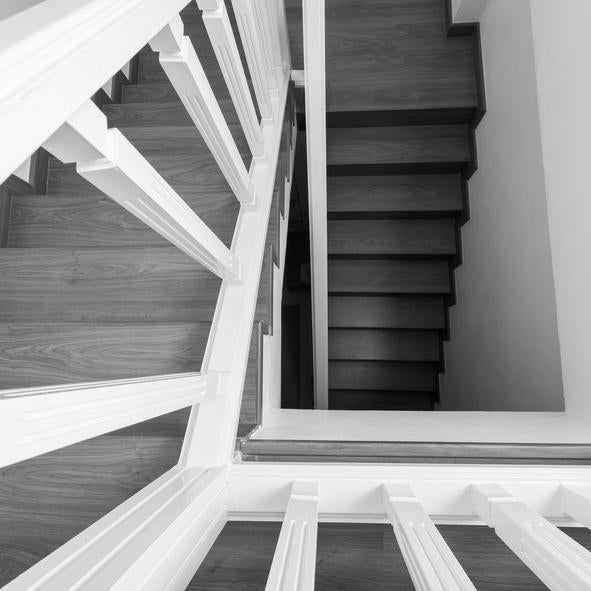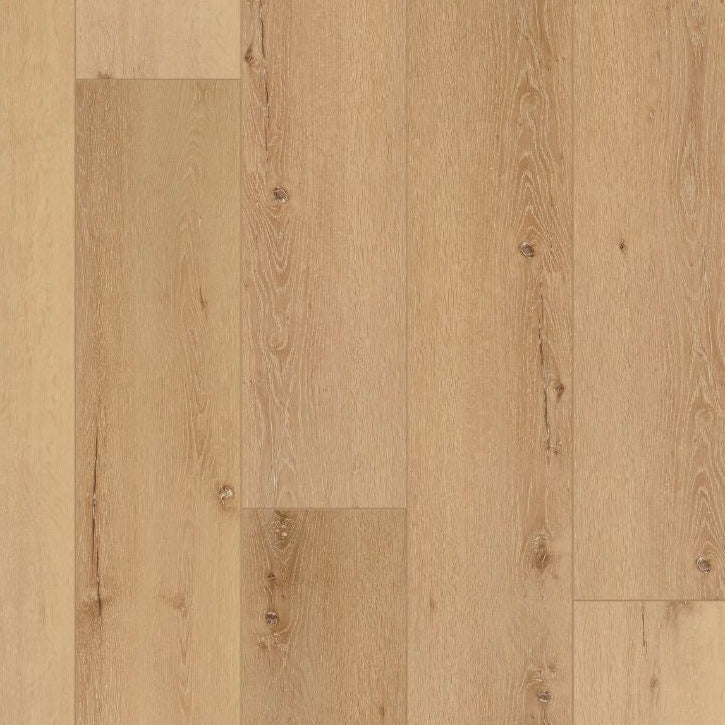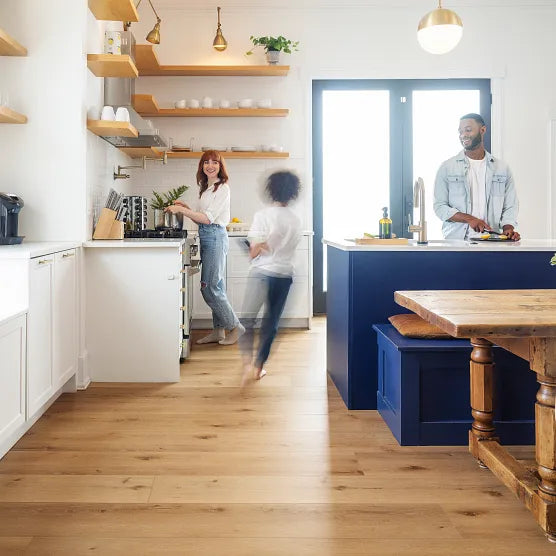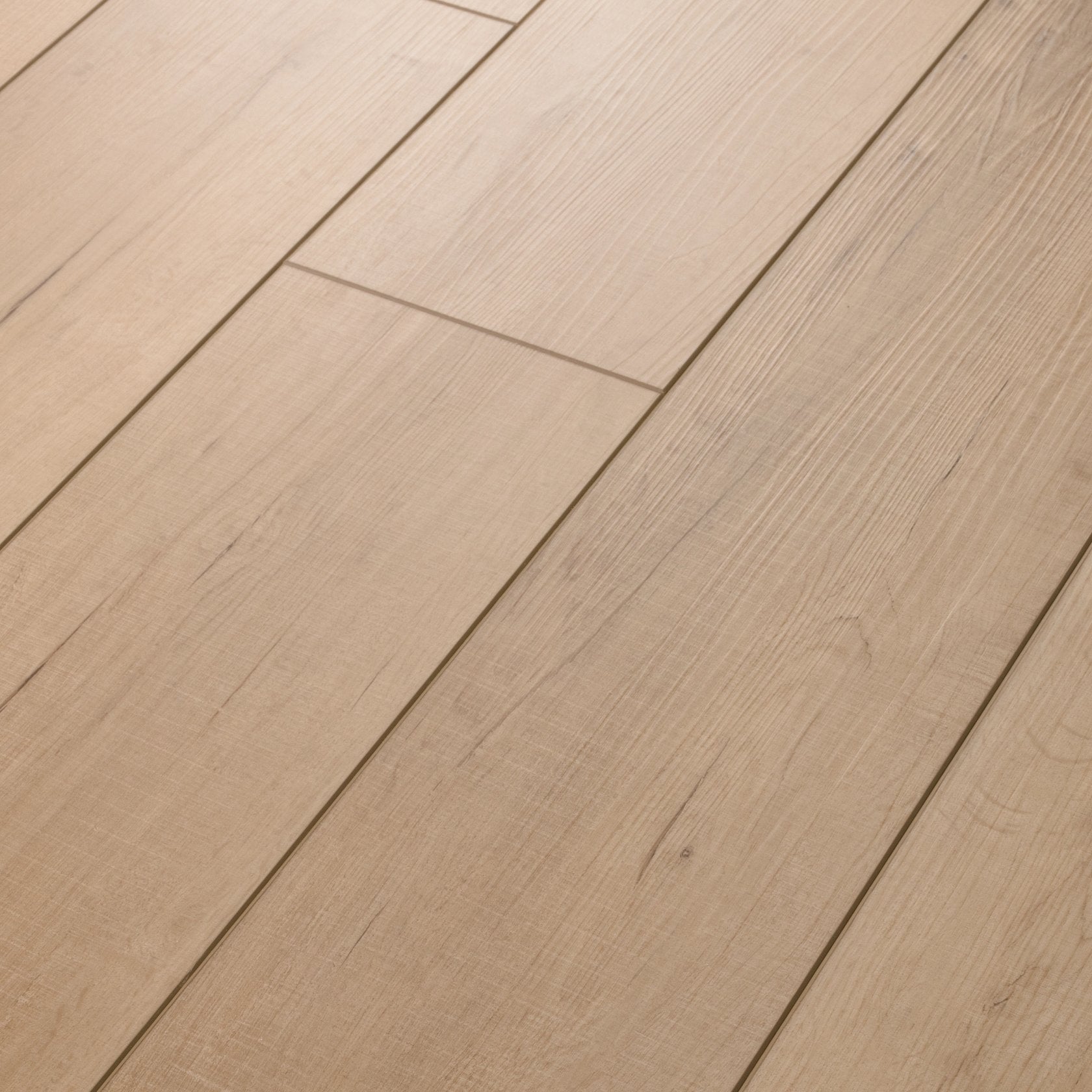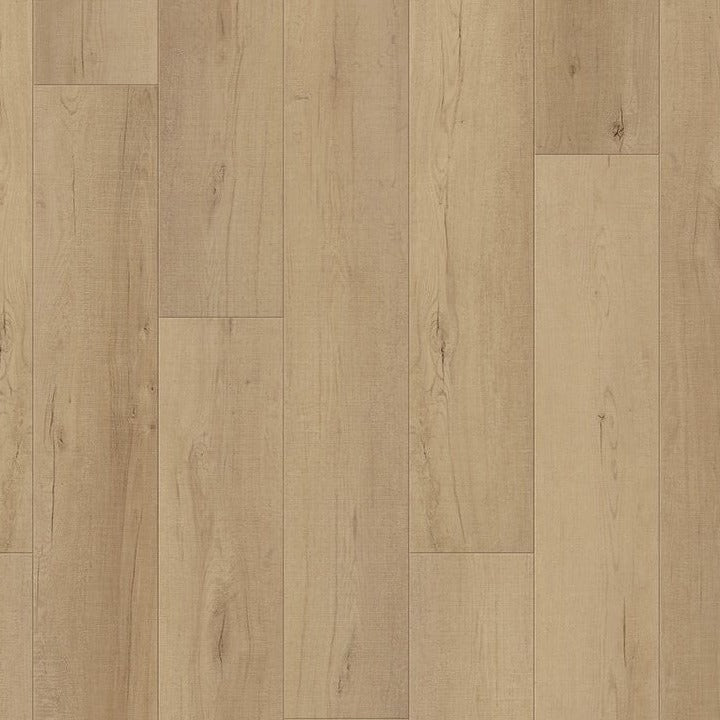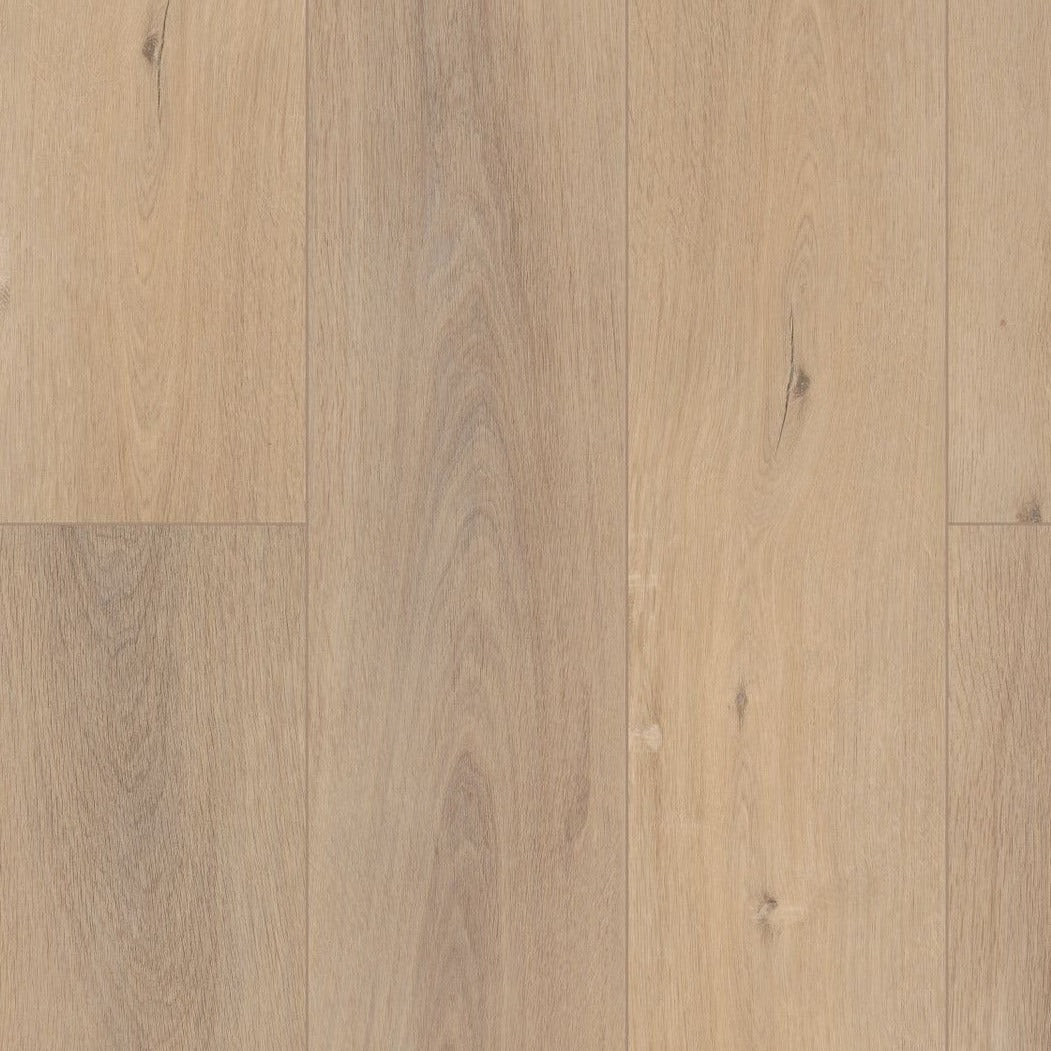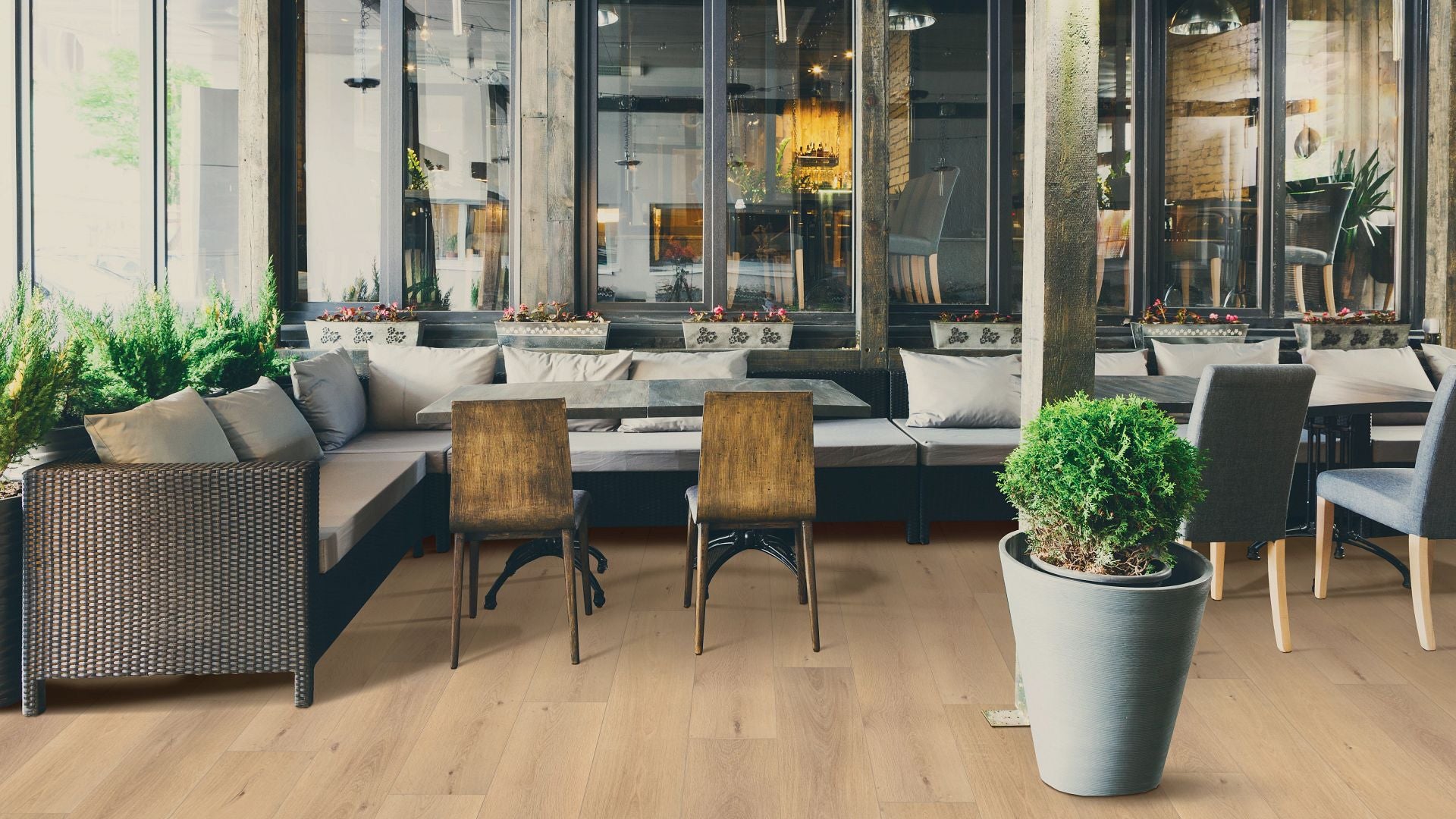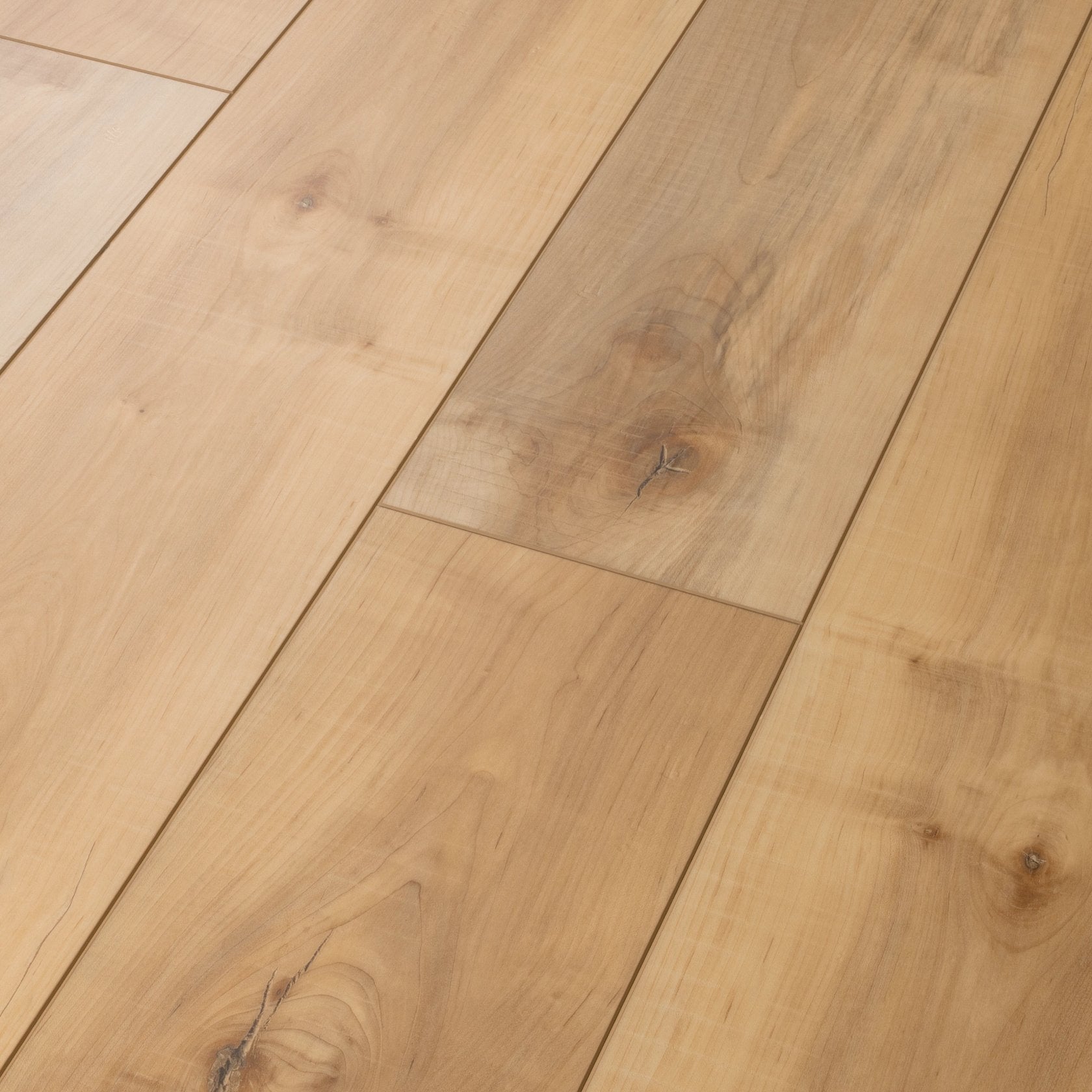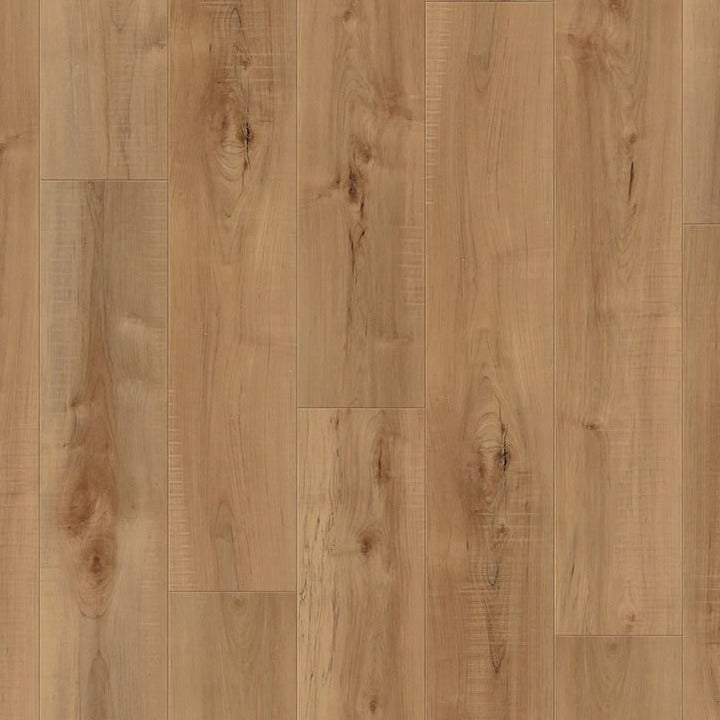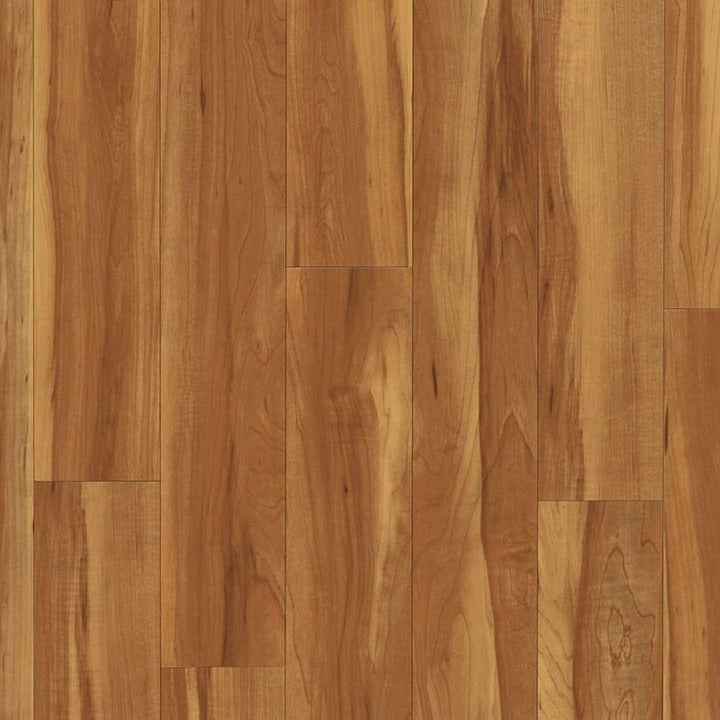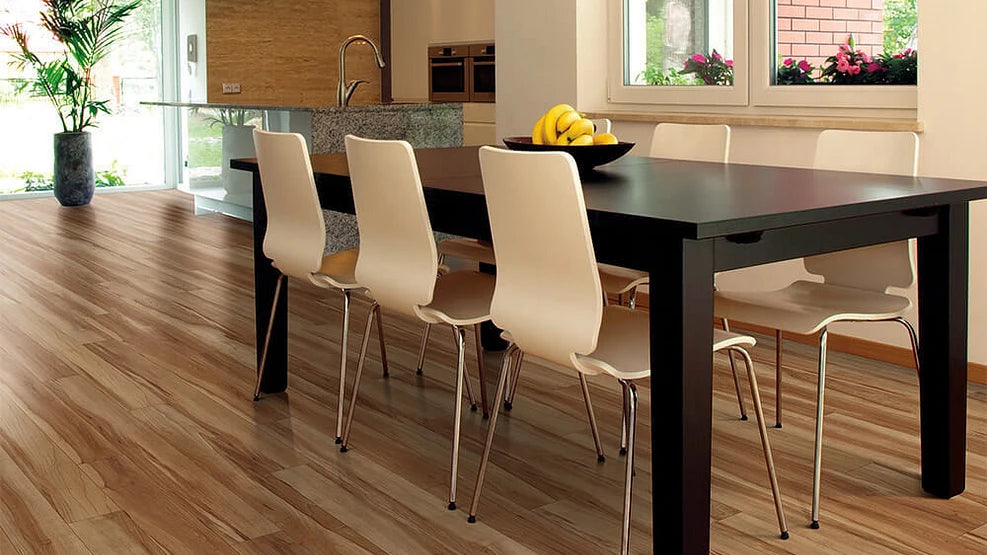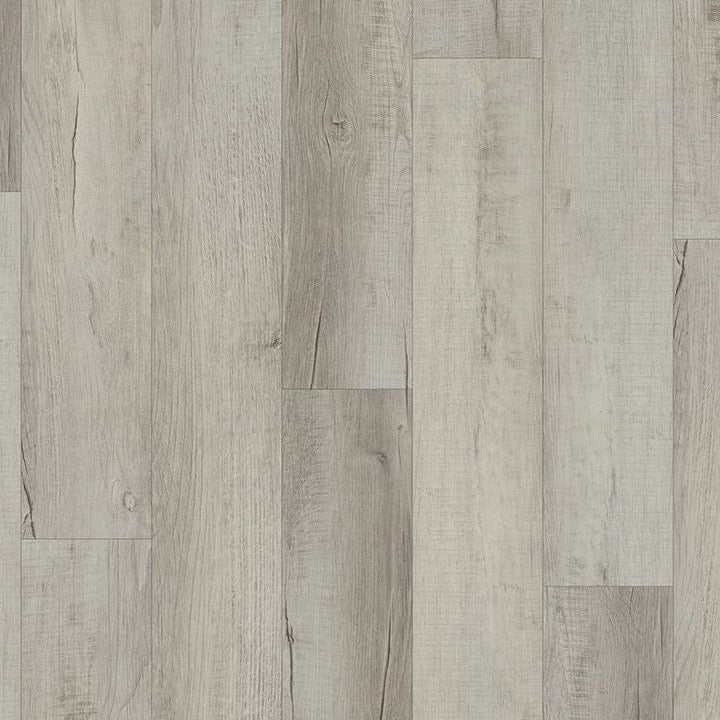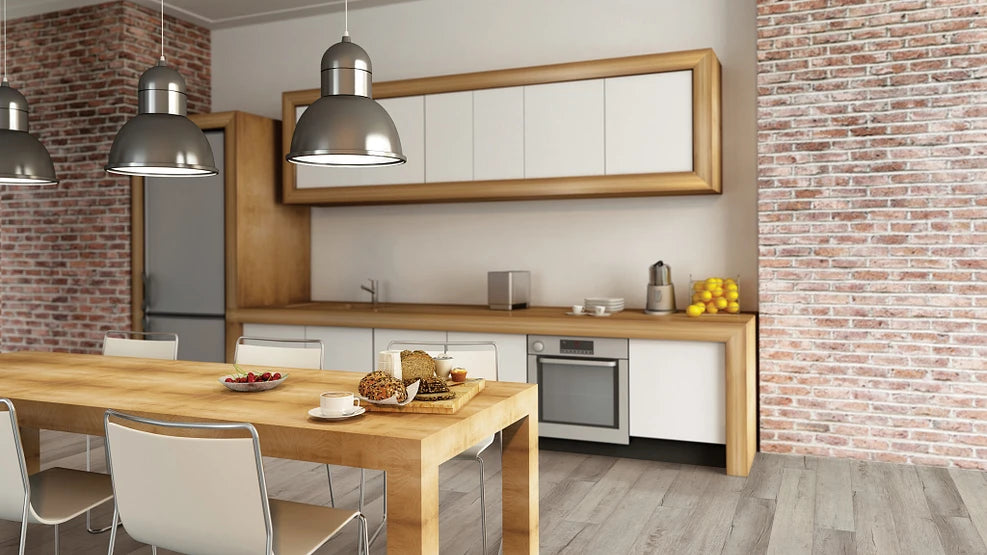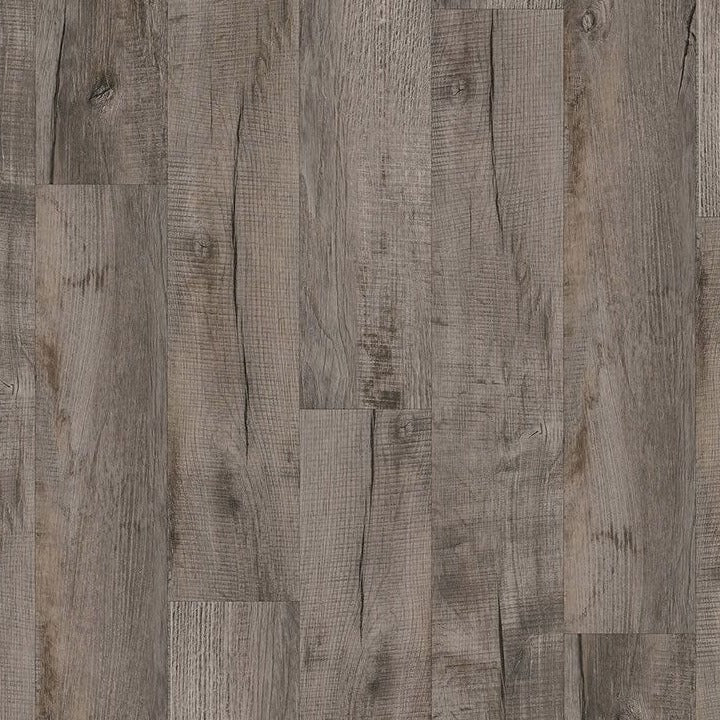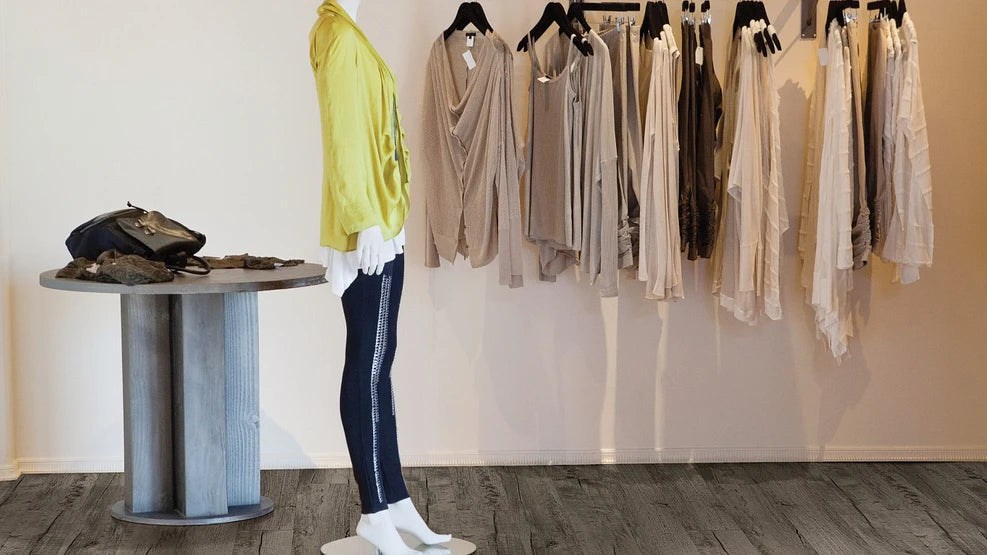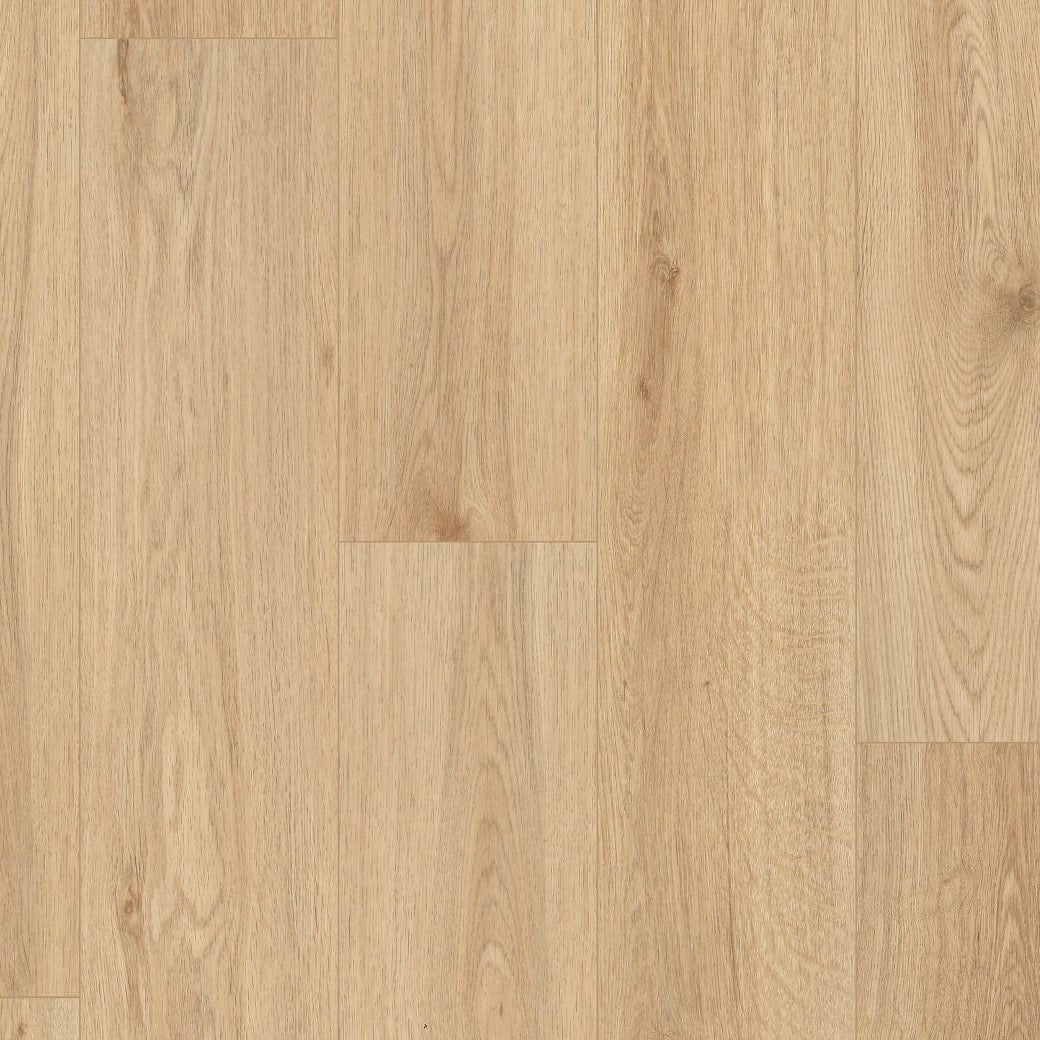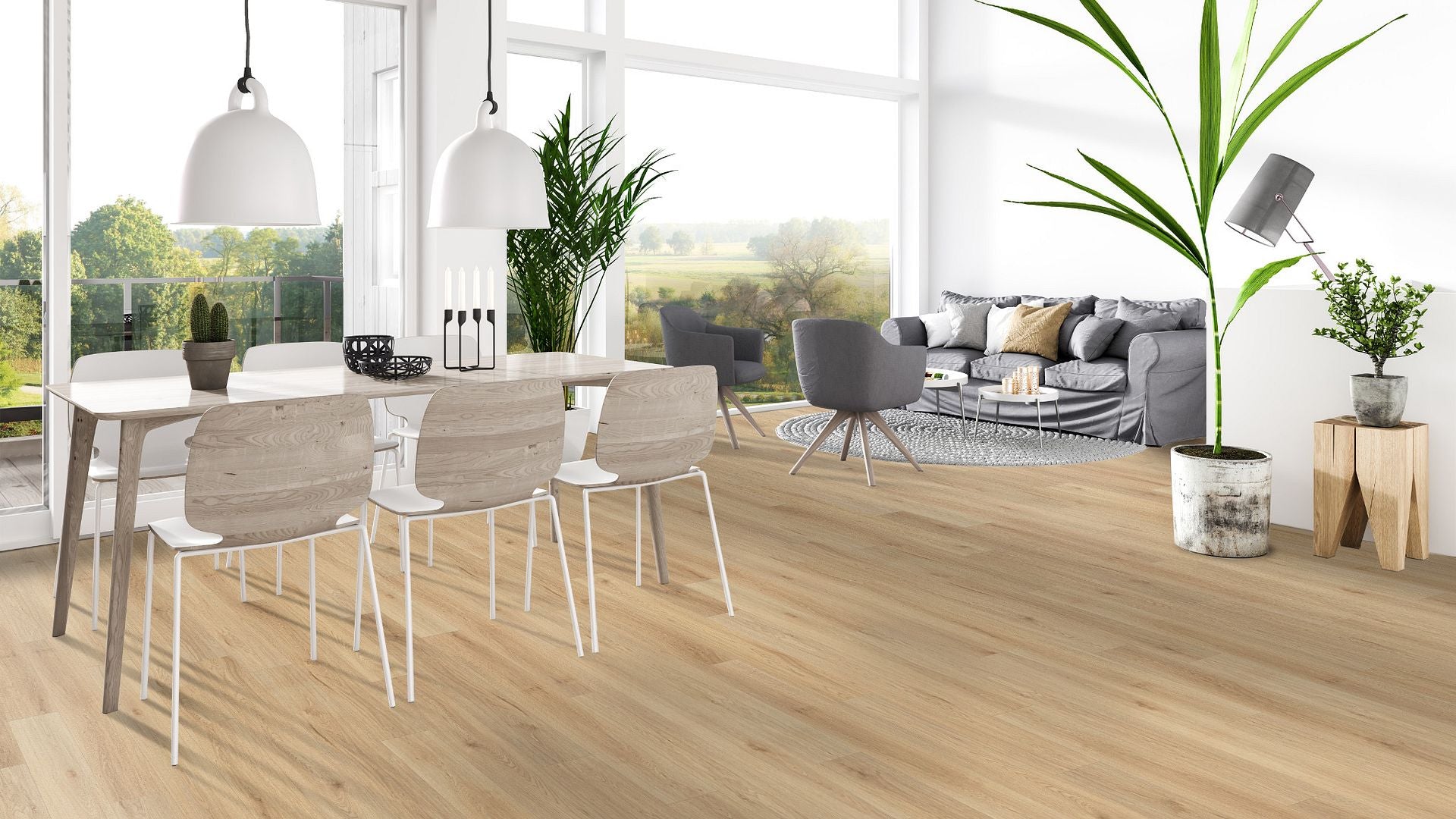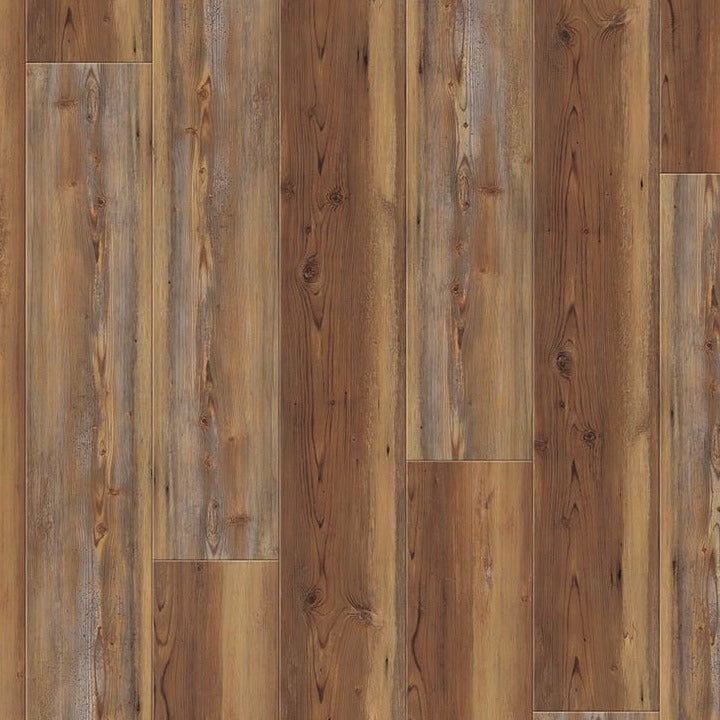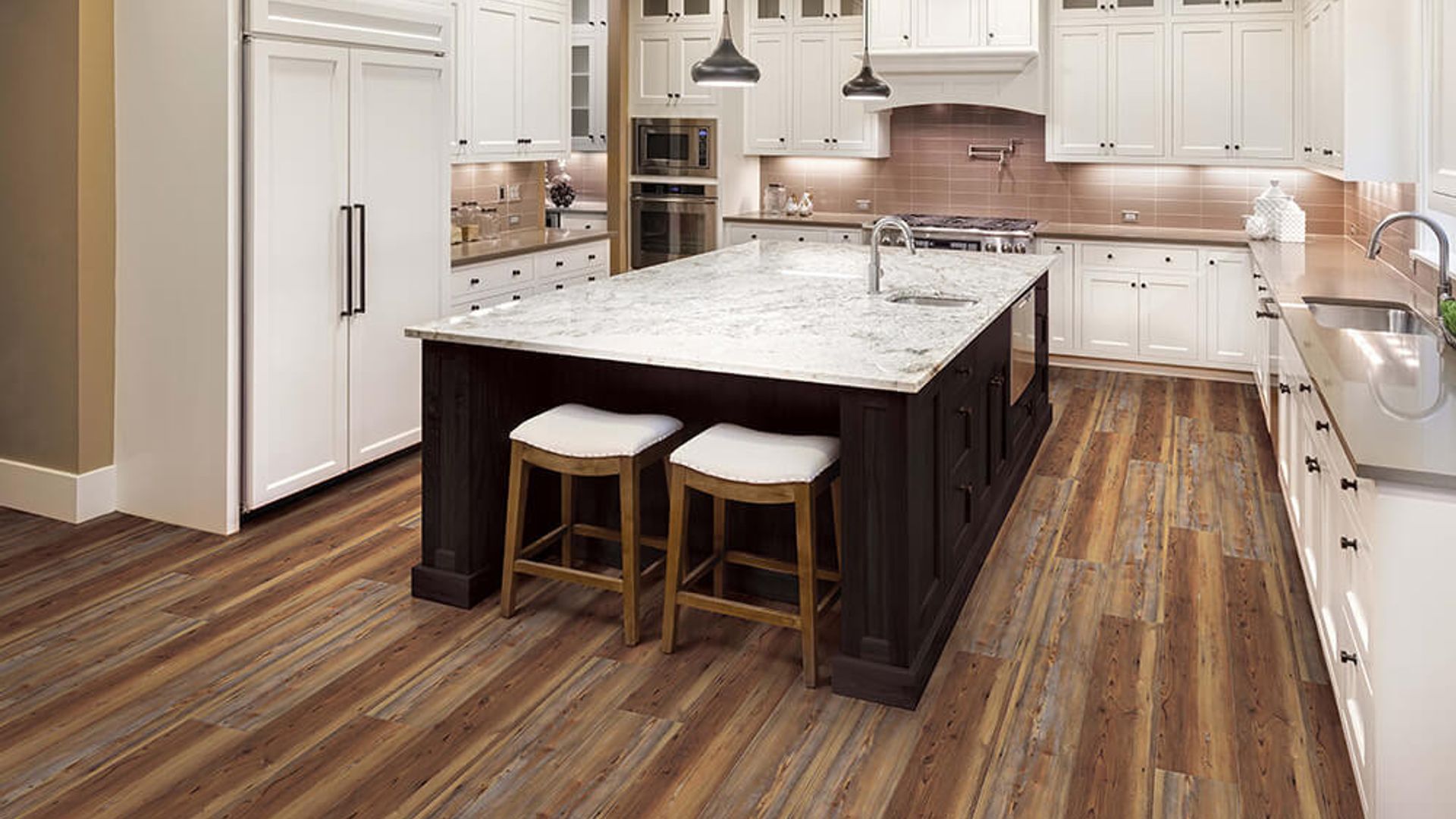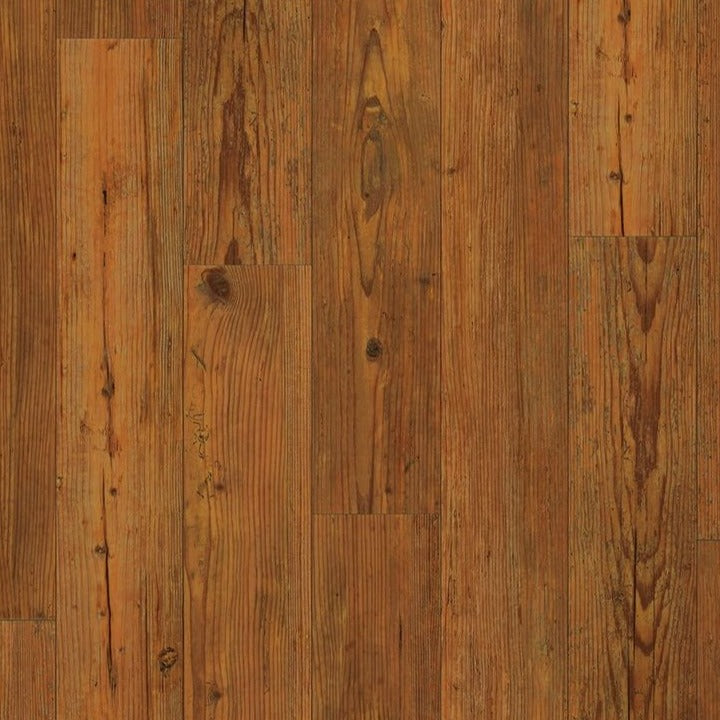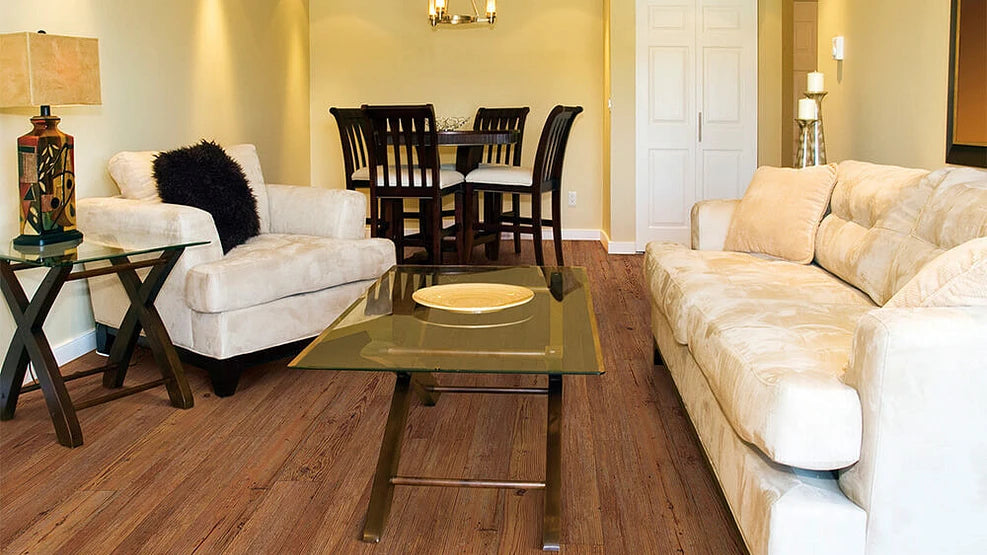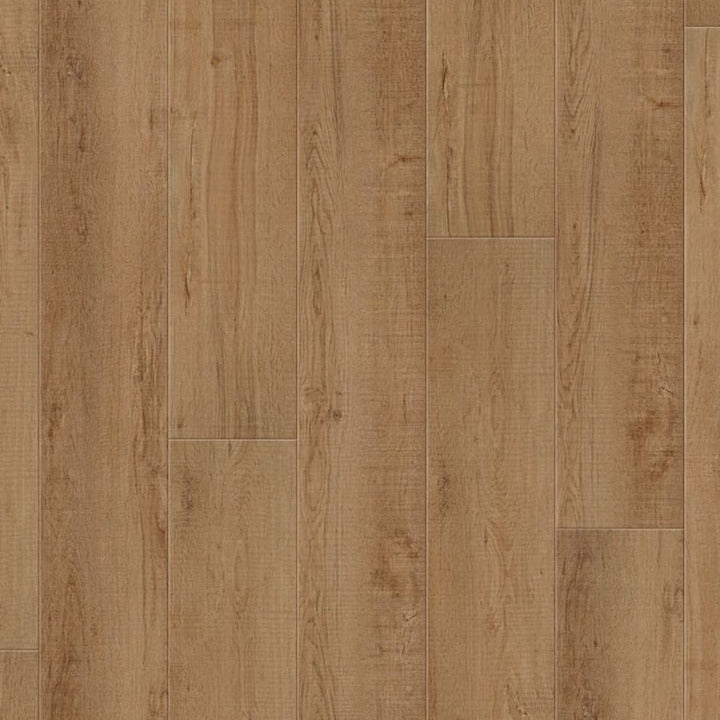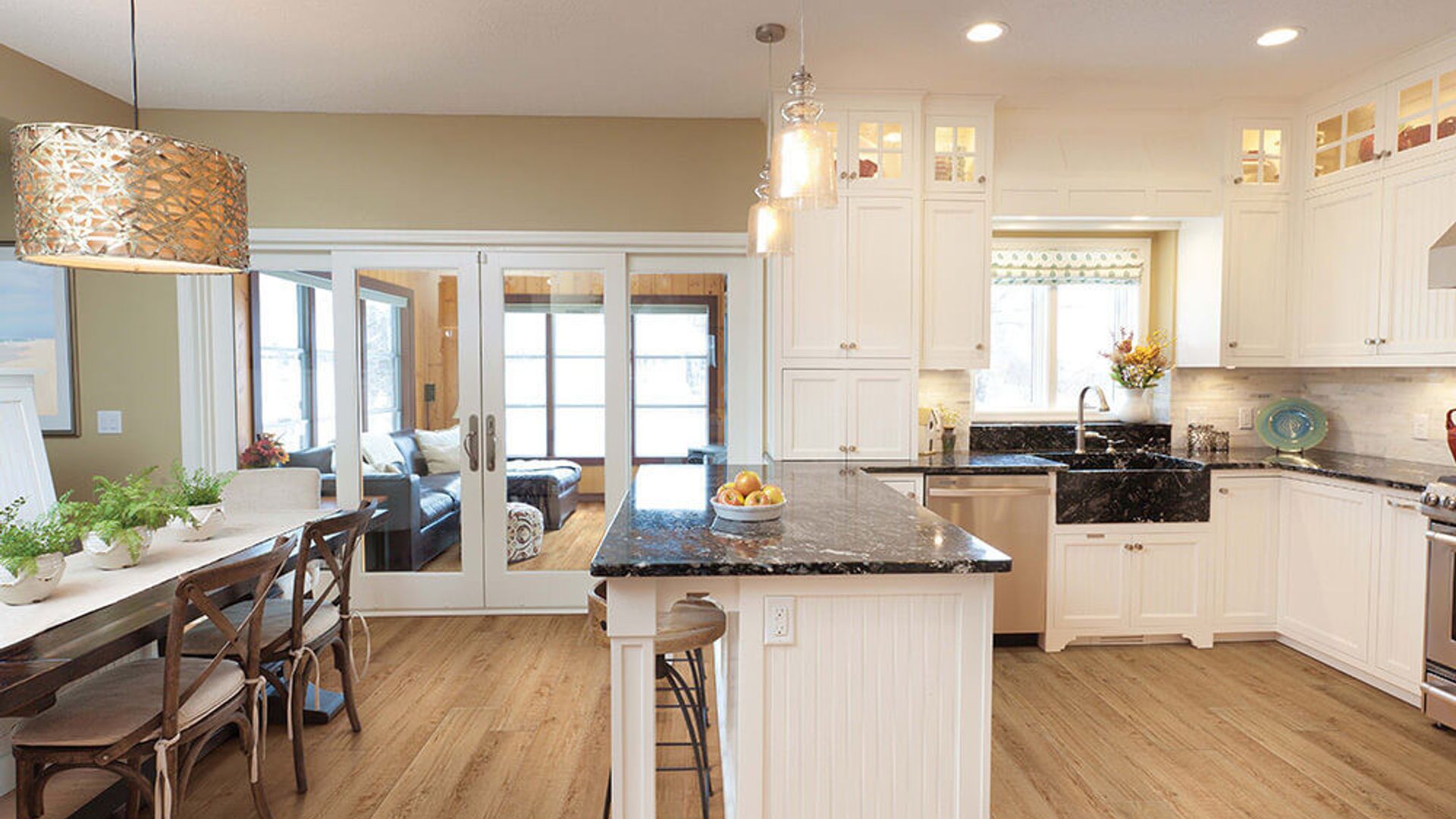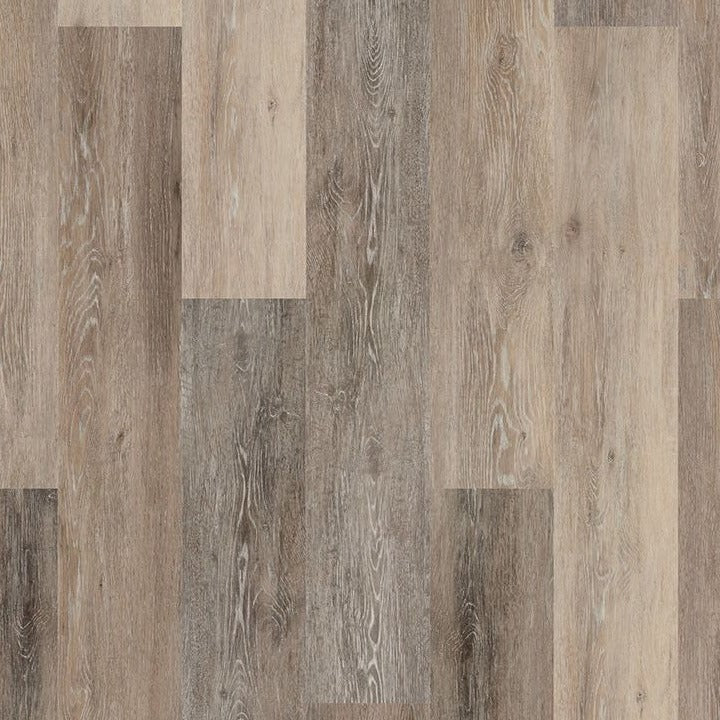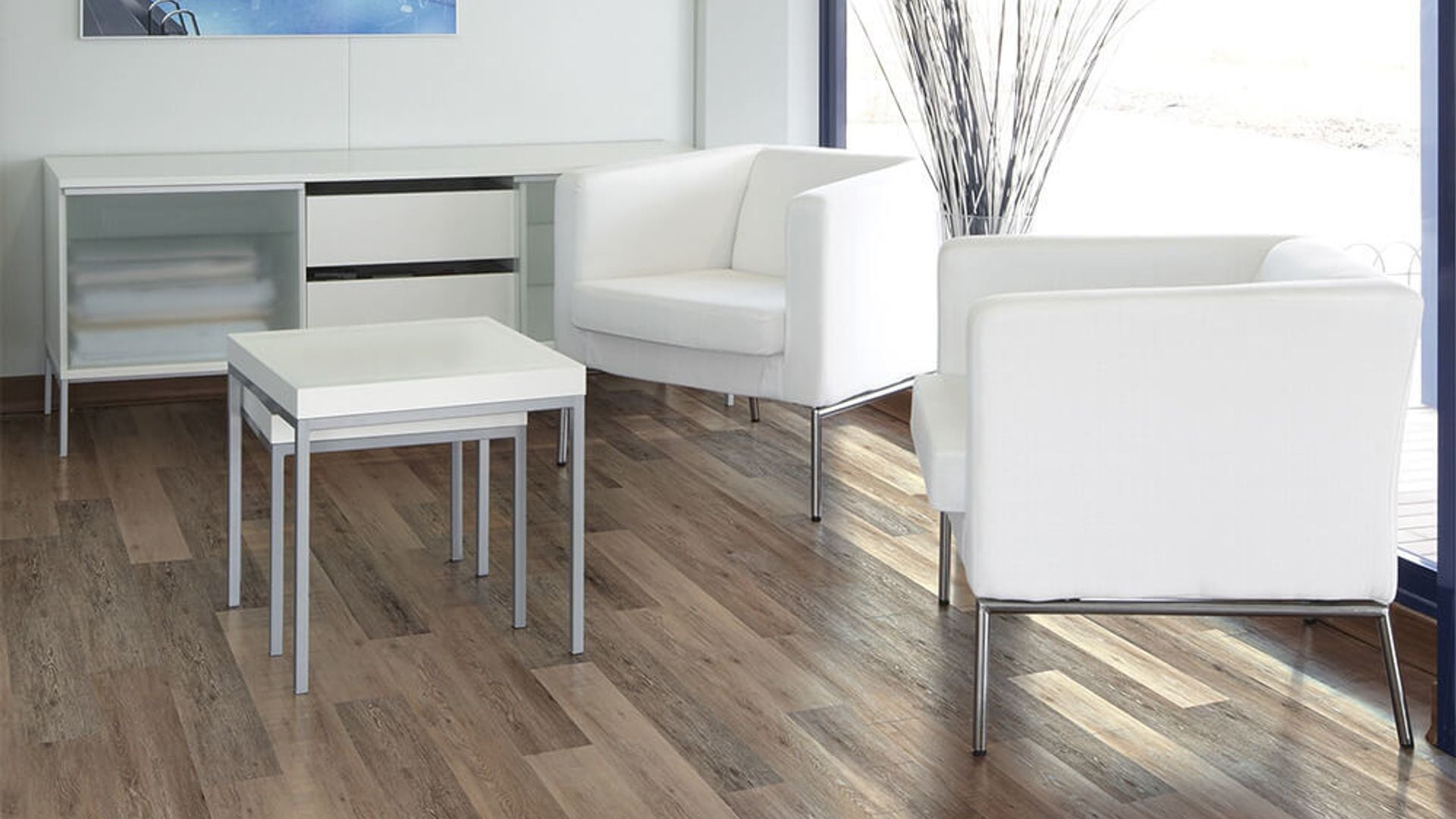If you're a business owner or a builder and you haven't discovered the benefits of luxury vinyl plank flooring (LVP), you owe it to yourself to learn more about this easy-care flooring alternative!
Vinyl flooring has come a very long way since the 1950s when it was used extensively in high-moisture areas in homes across the U.S. It's always had the advantage of being a low-maintenance choice when compared to alternatives like hardwood or tile, but its looks often left much to be desired. Thanks to today's state-of-the-art printing and photographic technology, though, that's a problem that no longer has much merit. Today's vinyl planks can look so much like hardwood or stone that even experts can have a hard time telling the difference at first glance!
Residential Applications
If you're a builder or a developer looking for a beautiful, durable, long-lasting flooring solution for kitchens, baths, hallways or other high-traffic, abuse-taking areas in a new home, you'll have a hard time finding a flooring material that can match the durability, ease of maintenance, and longevity of luxury vinyl plank flooring. In most residential applications, you can reasonably expect a LVP floor to withstand at least two decades of normal use without the need for sanding, re-grouting, etc. Plus, it allows the look of hardwood in areas like the kitchen where traditional hardwood flooring is impractical due to moisture concerns.
Commercial Applications
There are lots of reasons to explain the popularity of LVP flooring in commercial applications. As already mentioned, it's super-durable -- an essential feature for any floor that takes the kind of heavy foot traffic (and even rolling traffic via deliveries, etc.) that are common in many commercial settings. One of the best LVP floors for your business is Armstrong's LVP, which incorporates their proprietary Diamond 10 Technology -- a patent-pending formula that utilizes the unique qualities of actual cultured diamonds to produce LVP flooring that resists scratching, stains and stuffs, making it one of the toughest high-traffic floors available anywhere in the industry.
Another great option for new homes and light commercial settings such as an office suite is Konecto's MetroFlor, an easy-to-install floating LVP floor with patented glueless Grip-Strip technology. (MetroFlor is also known for its innovative spirit, having been the first company to introduce LVP flooring in the U.S., and boasts products that are ISO 9001 certified for quality management as well as ISO 14001 certified for environmental management.)
Anatomy of a Luxury Vinyl Plank Floor
If you're wondering what makes luxury vinyl plank flooring so durable, the secret lies in its "anatomy". Basically, each plank is made up of three parts -- a thick base layer which comprises 65% of its thickness and strength, a visual layer which is printed or embossed with a realistic and natural-looking design, and a finish layer to protect the floor from scratches, dents, etc.
Ease of Installation
Generally speaking, luxury vinyl plank floors are easy to install, especially when compared with other types of flooring, and in most cases, no underlayment is necessary.
In the case of click-lock (glueless) luxury vinyl plank flooring, using an underlayment could actually compromise the way the planks lock together, making it self-defeating to use one. In some cases -- such as when you're laying LVP flooring on a cement subfloor where moisture might be an issue -- it would be necessary to put down a vapor barrier to protect the flooring from moisture damage.
Wood plastic composite (WPC) luxury vinyl flooring is quite thick (averaging 5.5 mm), and the choice of whether to use an underlayment is yours since it can be laid directly on top of a clean subfloor. However, if you do choose to use an underlayment for a higher floor or more padding, be sure to use one that's compatible with LVP floors.
Ease of Maintenance
Sweeping and mopping are all the maintenance needed to keep a luxury vinyl floor looking great for years. In a commercial setting, this may need to be done more frequently than in a residential setting just by virtue of more frequent opening and closing of doors which can let dust and small particles of debris in, and of course, due to the significantly heavier foot traffic sustained in a commercial setting.


